Sequencing
Recent articles
START method assembles brain’s wiring diagram by cell type
The new technique mapped the interactions of about 50 kinds of inhibitory neurons in the mouse visual cortex in finer detail than previous approaches.
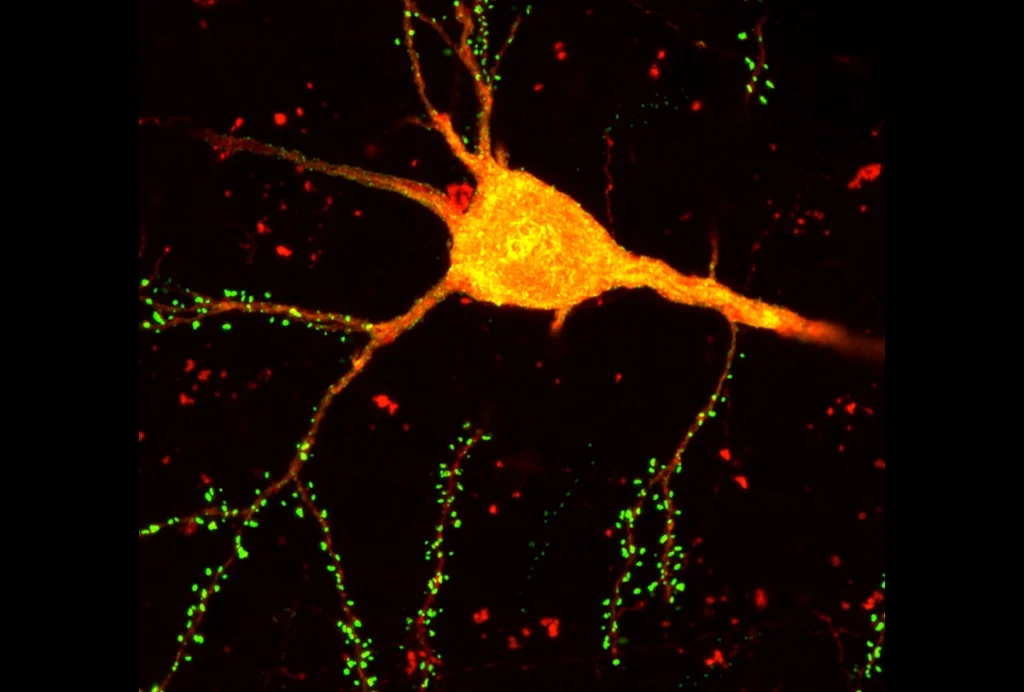
START method assembles brain’s wiring diagram by cell type
The new technique mapped the interactions of about 50 kinds of inhibitory neurons in the mouse visual cortex in finer detail than previous approaches.
Octopus arm anatomy, molecular makeup revealed in new maps
The datasets provide “a very nice reference” for future functional studies.
Octopus arm anatomy, molecular makeup revealed in new maps
The datasets provide “a very nice reference” for future functional studies.
How long-read sequencing will transform neuroscience
New technology that delivers much more than a simple DNA sequence could have a major impact on brain research, enabling researchers to study transcript diversity, imprinting and more.

How long-read sequencing will transform neuroscience
New technology that delivers much more than a simple DNA sequence could have a major impact on brain research, enabling researchers to study transcript diversity, imprinting and more.
Method pinpoints cell-specific effects of autism-linked mutations
The approach, which combines CRISPR with single-cell analyses of organoids, suggests that intermediate progenitor cells are especially vulnerable to mutations associated with autism.
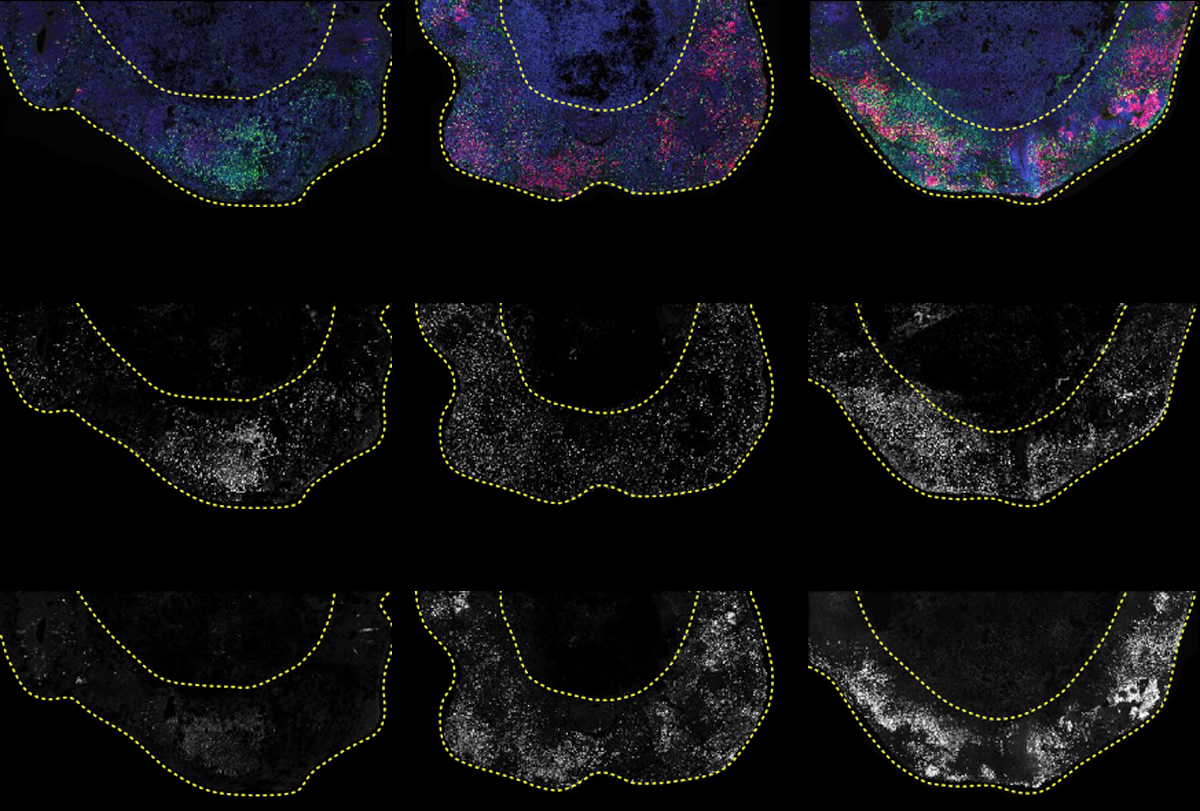
Method pinpoints cell-specific effects of autism-linked mutations
The approach, which combines CRISPR with single-cell analyses of organoids, suggests that intermediate progenitor cells are especially vulnerable to mutations associated with autism.
Mitochondria mediate effects of PTEN mutations
Whole-genome sequencing data — which include information about mitochondrial DNA — offer clues to why mutations in the same gene can lead to autism or cancer.

Mitochondria mediate effects of PTEN mutations
Whole-genome sequencing data — which include information about mitochondrial DNA — offer clues to why mutations in the same gene can lead to autism or cancer.
Null and Noteworthy: Modified MRI; father findings
This month’s newsletter tackles null findings from an attempted replication of a “revolutionary” MRI approach and an analysis of family genetics.
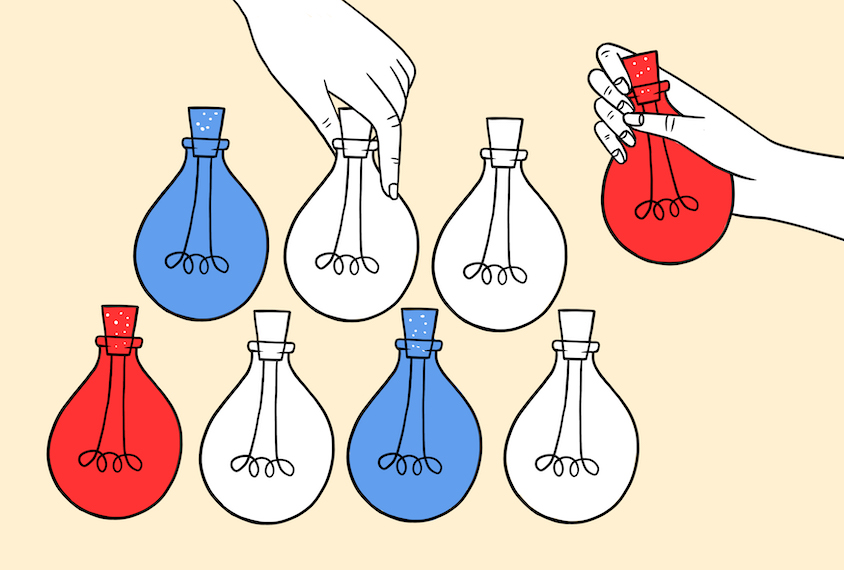
Null and Noteworthy: Modified MRI; father findings
This month’s newsletter tackles null findings from an attempted replication of a “revolutionary” MRI approach and an analysis of family genetics.
Preprint questions validity of postmortem brain studies
But the alternatives, including living-brain biopsies, raise logistical and ethical questions, experts say.
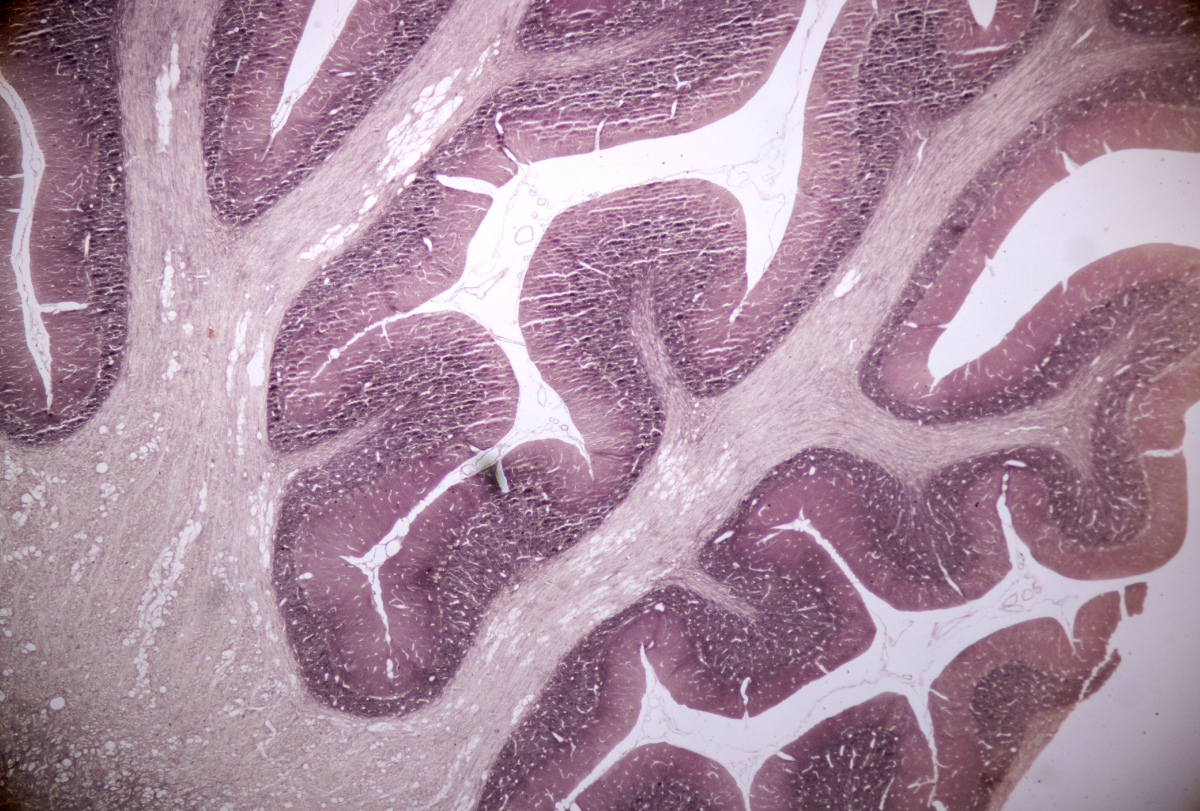
Preprint questions validity of postmortem brain studies
But the alternatives, including living-brain biopsies, raise logistical and ethical questions, experts say.
Atlas of gene activity in prenatal brain holds clues to autism
Genes exert their strongest influence on the brain in the first half of gestation — a key window for autism and other neurodevelopmental conditions.
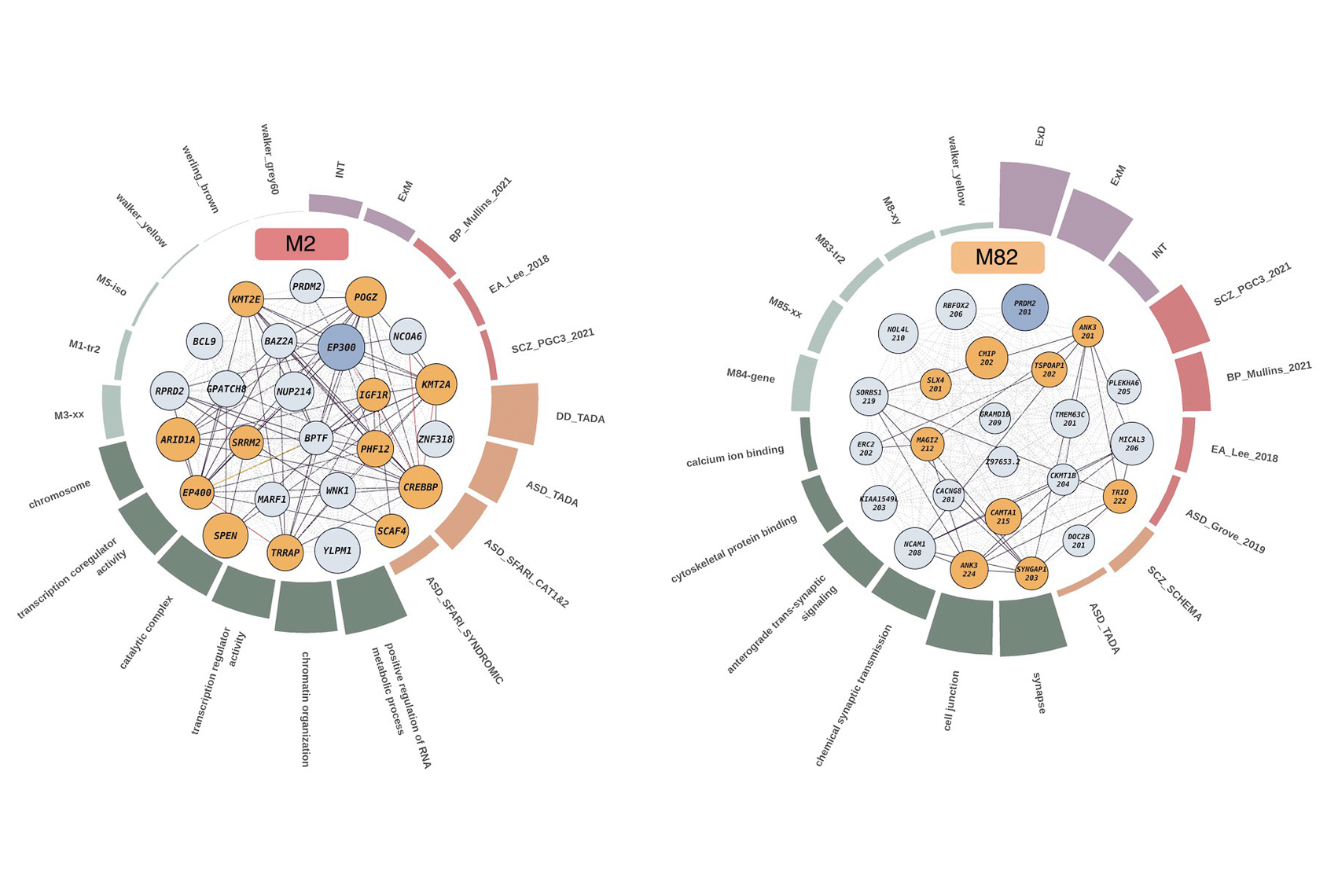
Atlas of gene activity in prenatal brain holds clues to autism
Genes exert their strongest influence on the brain in the first half of gestation — a key window for autism and other neurodevelopmental conditions.
African genetics study NeuroDev shares initial findings
The most comprehensive study of neurodevelopmental conditions in Kenya and South Africa ever conducted shares preliminary results and lessons.
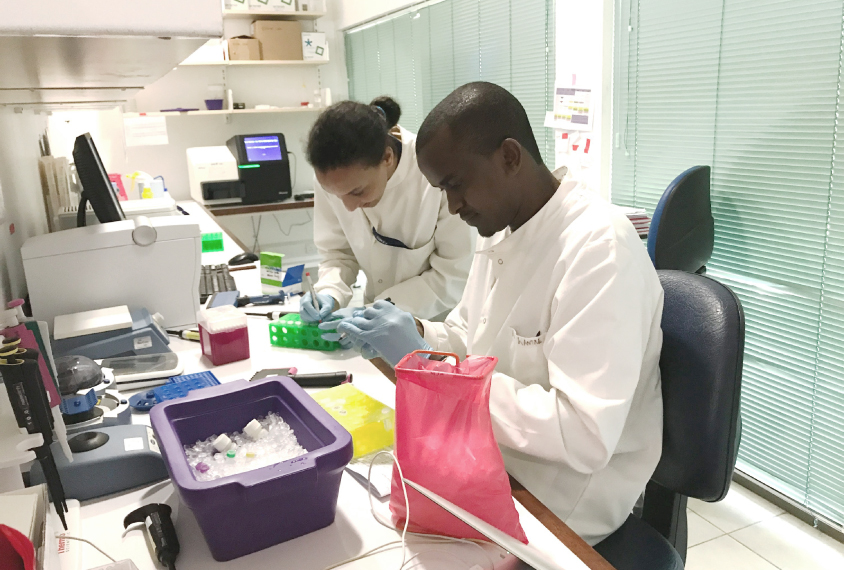
African genetics study NeuroDev shares initial findings
The most comprehensive study of neurodevelopmental conditions in Kenya and South Africa ever conducted shares preliminary results and lessons.
Chromatin remodeling tied to altered splicing in autism model
Exposing neurons to valproic acid, a well-known environmental risk factor for autism, disrupts their ability to generate different proteins from the same gene.
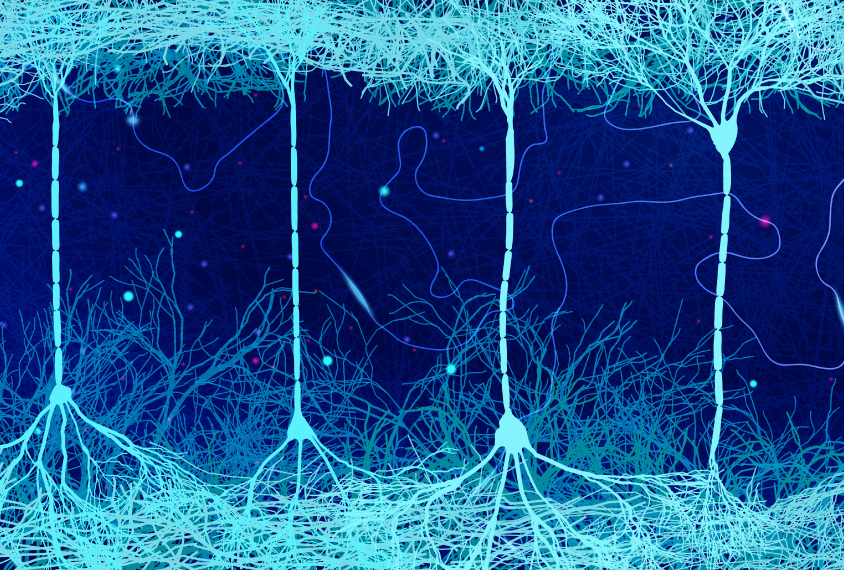
Chromatin remodeling tied to altered splicing in autism model
Exposing neurons to valproic acid, a well-known environmental risk factor for autism, disrupts their ability to generate different proteins from the same gene.
Explore more from The Transmitter
Lack of reviewers threatens robustness of neuroscience literature
Simple math suggests that small groups of scientists can significantly bias peer review.

Lack of reviewers threatens robustness of neuroscience literature
Simple math suggests that small groups of scientists can significantly bias peer review.
Dendrites help neuroscientists see the forest for the trees
Dendritic arbors provide just the right scale to study how individual neurons reciprocally interact with their broader circuitry—and are our best bet to bridge cellular and systems neuroscience.

Dendrites help neuroscientists see the forest for the trees
Dendritic arbors provide just the right scale to study how individual neurons reciprocally interact with their broader circuitry—and are our best bet to bridge cellular and systems neuroscience.
Two primate centers drop ‘primate’ from their name
The Washington and Tulane National Biomedical Research Centers—formerly called National Primate Research Centers—say they made the change to better reflect the breadth of research performed at the centers.

Two primate centers drop ‘primate’ from their name
The Washington and Tulane National Biomedical Research Centers—formerly called National Primate Research Centers—say they made the change to better reflect the breadth of research performed at the centers.